A quiet revolution is happening in how we understand consciousness, not as something trapped inside our skulls, but as something that blooms between us. This isn’t merely a philosophical nicety; it's a fundamental reorientation of how we approach being human.
In our years exploring radical knowing (Christian’s work) and natural wisdom (Rodney’s work), we've discovered something both ancient and urgently contemporary: consciousness doesn’t just exist in relationship, it is relationship, or, more accurately, consciousness is intersubjective, always involving shared meaning with others. Even the etymology of “consciousness” captures this connection: from the Latin conscenta, to “share knowledge with others.” This insight transforms everything from how we heal burnout to how we find meaning in an increasingly disconnected world.
The Poverty of the Isolated Mind
Walk into any bookstore and you’ll find shelves groaning with promises of individual transformation. “Optimise yourself.” “Hack your productivity.” “Master your mindset.” These mantras of modern self-help reveal our culture’s deepest assumption: that we are fundamentally alone, each responsible for engineering our own success.
But what if this very assumption is the source of our collective suffering?
Christian argues for four fundamental ways humans have always known the world. There’s the Philosopher’s Gift of reason and conceptual understanding and the Scientist’s Gift of sensory observation and empirical knowledge. But equally vital are the Shaman’s Gift of participatory feeling and embodied knowing, and the Mystic’s Gift of direct spiritual experience and unity consciousness.
The Four Gifts of Knowing
How do we know the world around us (i.e., how do we “read” patterns in energy) to produce information about self and cosmos, and overcome the seemingly contradictory or incompatible domains of scientific and spiritual knowledge?
One way of dealing with this is to cultivate what Christian calls the “four gifts of knowing.” We all come into the world with different innate capacities or potentials for learning about ourselves and how we fit into nature. These capacities, or “gifts,” are: the Scientist’s Gift of the senses (and empirical methodology), the Philosopher’s Gift of reason and language, the Shaman’s Gift of participatory feeling and alternative states of consciousness, and the Mystic’s Gift of “transcendental” direct experience, unmediated by the senses or conceptual processing, and often accessed via sacred silence.
If we apply these four gifts to developing a science of consciousness, then the Scientist’s Gift opens the way for investigating what the brain is, how it works, and how it correlates with mind. It gives us data and descriptions. The Philosopher’s Gift enables us to talk about why we can know (or not know) what consciousness is, and why we can (or cannot) talk about it. The Philosopher’s Gift gives us reasons and explanations.
The Shaman’s Gift equips us to see and know where consciousness can take us, trusting in the wisdom of the body (our own body, the Earth’s body, and the great body of the Cosmos itself). The Shaman’s Gift gives us deeper vision into subtle realms. Finally, the Mystic’s Gift of sacred silence is the source of intuition and transcendence, gateway to the ineffable domain of spirit. The Mystic’s Gift brings us closer to knowing who guides the mind.
To “know” the domain of Spirit, we need to let go of all separation between knower and known, between subject and object, between knowing and being. Here, we must open up to the Mystic’s Gift of transcendence, beyond all distinctions, beyond information, beyond thought, even beyond knowledge and experience itself. This is the silent realm of spiritual wisdom.
The Mystic’s Gift, then, is ultimately utterly beyond all expression in thought or language because it is not an object of knowledge. It is the nondual integration of all objects and subjects, even beyond the union of intersubjects in universal communion. Perhaps the wisest advice for accessing and cultivating this gift is to simply let go and pay attention to the divine, eternal shhhhhhh—the zero-point of sacred silence forever open to us now.
Our contemporary crisis isn’t just that we’ve over-emphasised the Scientist’s and the Philosopher’s gifts. It’s that we've forgotten they were never meant to operate in isolation. True knowing emerges when all four dance together, and this dance happens not in solitary minds, but in the spaces between us.
From ‘Thinking About’ to ‘Feeling With’
When we first invite clients into this practice, they often pause, feeling confused. We’re so accustomed to thinking about our feelings that the invitation to feel our thinking, as Christian advises, seems almost nonsensical. Yet this simple shift, from analytical distance to embodied presence, opens doorways that years of therapy or meditation sometimes miss.
We call this “moving from optimisation to alignment.” Letting go of what is optimal is not about becoming less effective; it’s about discovering effectiveness that emerges from alignment rather than by force. When executives come to us burned out from endless productivity hacks, we don’t offer them better systems. We invite them to rediscover the natural wisdom that knows when to push and when to pause, when to speak and when to listen.
The Laboratory of Dialogue
One of our most transformative practices draws from physicist David Bohm’s insight that dialogue can be a form of collective meditation. But this isn’t dialogue as debate or even as conversation; it’s dialogue as shared exploration of consciousness itself.
Typically, in a Bohmian Dialogue session (Christian prefers to call it, “B-Dialogue”), a group of about 25 people sits in a circle, at first in silence, noticing whatever shows up in their bodies or passes through their minds. When someone speaks, it occurs as an authentic expression from the heart or soul, about whatever is important for that person at that moment. Everyone’s job is to listen for meaning rather than focusing on “facts.”
Almost every time we hold a B-Dialogue session, people report afterwards how deep the experience was for them, and how much they miss silence in their busy workaday lives. It is a form of collective inquiry and meditation, designed to facilitate participants’ experience of “group consciousness.”
B-Dialogue has no agenda, no topic is set in advance. The content of the dialogue is whatever arises spontaneously from the group. It involves whatever is truly and authentically on the minds (and alive in the bodies) of each participant and the group. By giving full self-expression, participants can remove blocks and deepen their experience of being in relationship, with themselves, others, and the world around us.
Sacred Silence
In B-Dialogue, we have an opportunity to “return to the source,” to the concrete feelings that connect us with the world. We explore the fragmentation in our thinking (and how this shows up as fragmentation in our relationships, in society, and in our lives).
B-Dialogue provides a safe “sacred space” for participants to engage directly with what is actually happening in their experience, to feel whole and in relationship with people, planet, and the spiritual dimension of our being.
In these sessions, whether with couples navigating a crisis or teams seeking innovation, we create space for what naturally emerges between people. The magic isn’t in what any individual says; it’s in what becomes possible when we truly meet each other in the present moment. Silence becomes as eloquent as speech. Confusion becomes as valuable as clarity. The relationship itself becomes the teacher.
We’ve watched hardened executives weep as they discover they can be seen without needing to perform. We’ve seen couples find each other again, not through better communication techniques, but through remembering how to be present together. This isn't therapy; it’s philosophy as a living practice.
Natural Wisdom: The Intelligence of Slowing Down
Intelligence emerges naturally when we stop trying so hard to be intelligent. Rodney calls this “natural wisdom,” not because it comes from nature (although nature is certainly one of its teachers), but because it arises naturally when we stop forcing outcomes.
This wisdom knows things our analytical minds miss: when a pause would serve better than an answer; how vulnerability creates more safety than armour; why efficiency without presence leads to emptiness; and that meaning emerges from connection, not achievement.
In our philosophical coaching sessions, we don’t solve problems so much as dissolve the frameworks that created them. A client struggling with work-life balance discovers the issue itself assumes a split that doesn’t exist. Entrepreneurs seeking purpose realise they’ve been looking in spreadsheets for what can be found only in relationships.
The Radical Act of Conscious Relationship
To live radically isn’t to live extremely, it’s to live from the roots, the radix, of what makes us human. And those roots are relational through and through.
Conscious relationship means approaching each encounter as an opportunity for mutual awakening. It’s recognising that our individual healing happens through collective presence, understanding that wisdom isn’t possessed but shared, and knowing that transformation happens not to us but between us.
This requires courage. In a world that rewards individual achievement, choosing relational depth and connection can feel like swimming against the current. It means risking being seen in our uncertainty, met in our incompleteness, known in our becoming rather than by our accomplishments.
Philosophy as Living Practice
The philosophy we’re describing isn’t academic, it’s embodied, relational, alive. It happens in the quality of attention we bring to our breakfast conversations, the presence we offer a struggling colleague, the patience we extend to our own unfolding.
When philosophy returns to its roots as “love of wisdom”—philo (love) sophia (wisdom)—rather than love of cleverness or linguistic precision, it becomes medicine for our times. Not medicine that numbs or fixes, but medicine that awakens us to the intelligence already moving through our embodied relationships.
As we write this, we’re aware we’re not just sharing ideas, but extending an invitation: Trust the wisdom that emerges between us more than the knowledge we possess alone. Value presence over productivity without abandoning effectiveness. Explore consciousness not as observers, but as participants. Discover that meaning isn’t something we create, but something we join.
The crises of our time—ecological, psychological, and spiritual—all share a common root: forgetting our fundamental inter-beingness. Healing begins not with new technologies or better systems, but with remembering what we’ve always known in our bones: we are not isolated individuals navigating a foreign world. We are the world knowing itself through billions of perspectives, each irreplaceable, all interconnected.
We all exist as “points” or “nodes” in the great cosmic matrix of being, where each individual is created by the interplay (or “meeting”) of relationships between multiple nodes in the cosmic web. Christian calls it: “Cosmos confluencing” (see image): We all co-create each other at every moment . . . that’s intersubjectivity (and, by the way, “we” means all sentient beings, not just humans.)
This is radical knowing. This is natural wisdom. This is philosophy not as abstract thought, but as the art of living fully human.
To explore radical knowing further, read ’s book, Radical Knowing: Understanding Consciousness through Relationship. For ongoing reflections on natural wisdom, meaning, and philosophical coaching, subscribe to Coaching Philosophia newsletter on Substack.
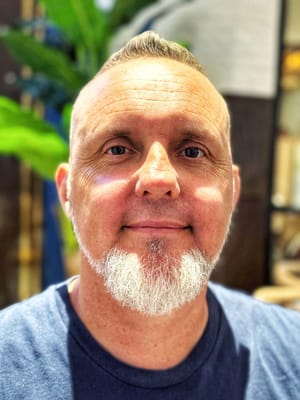



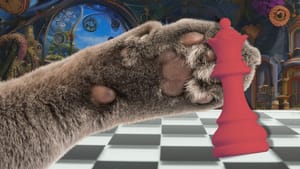
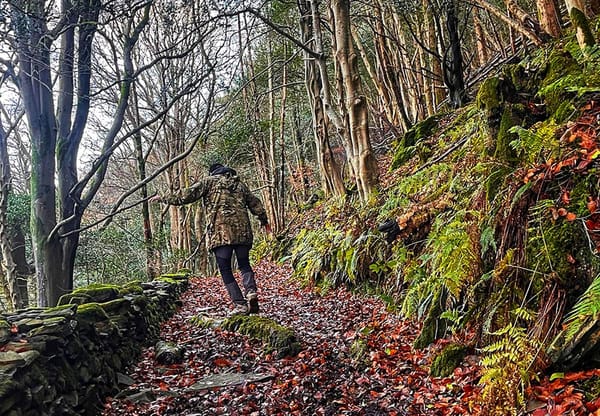
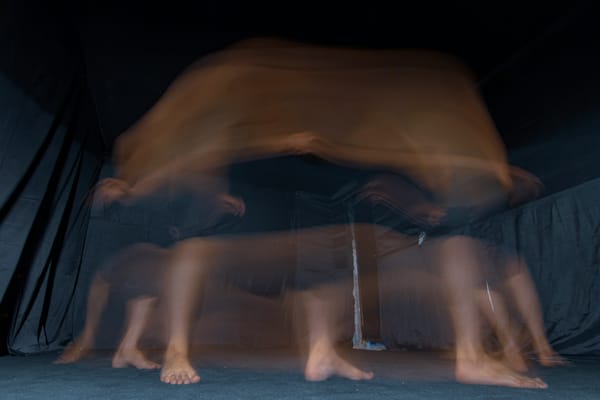


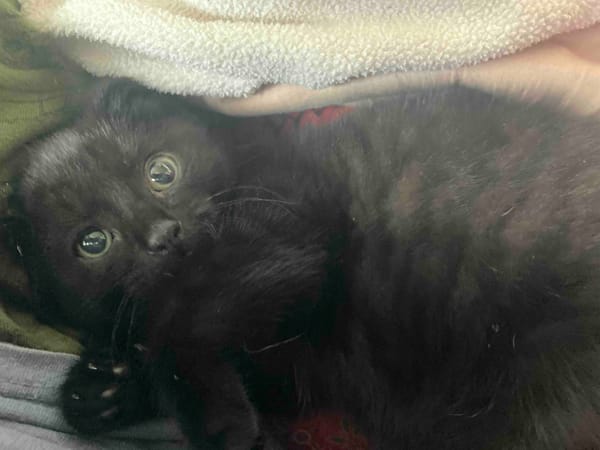
Member discussion